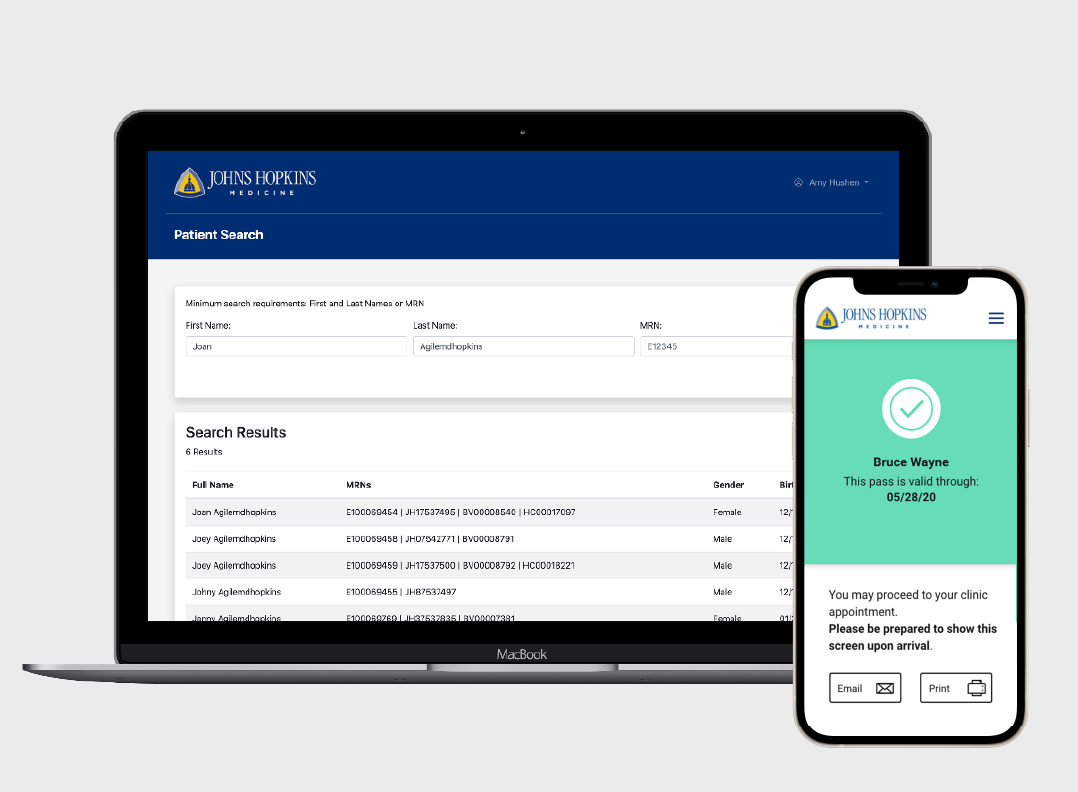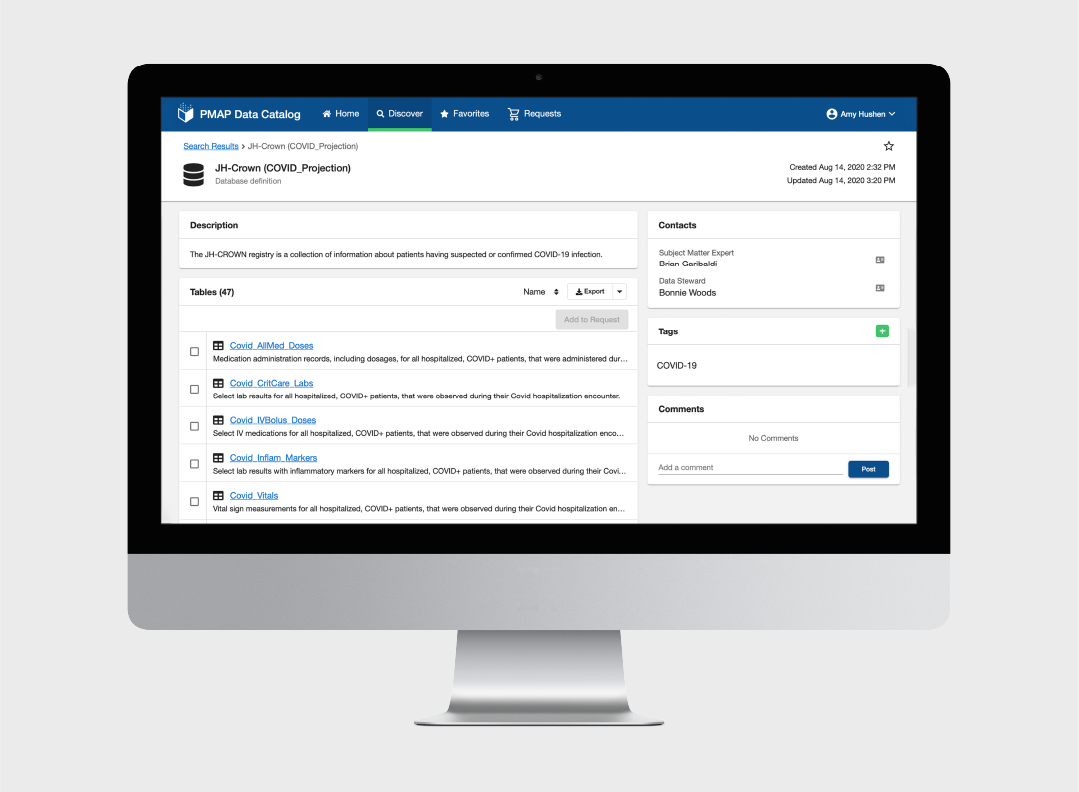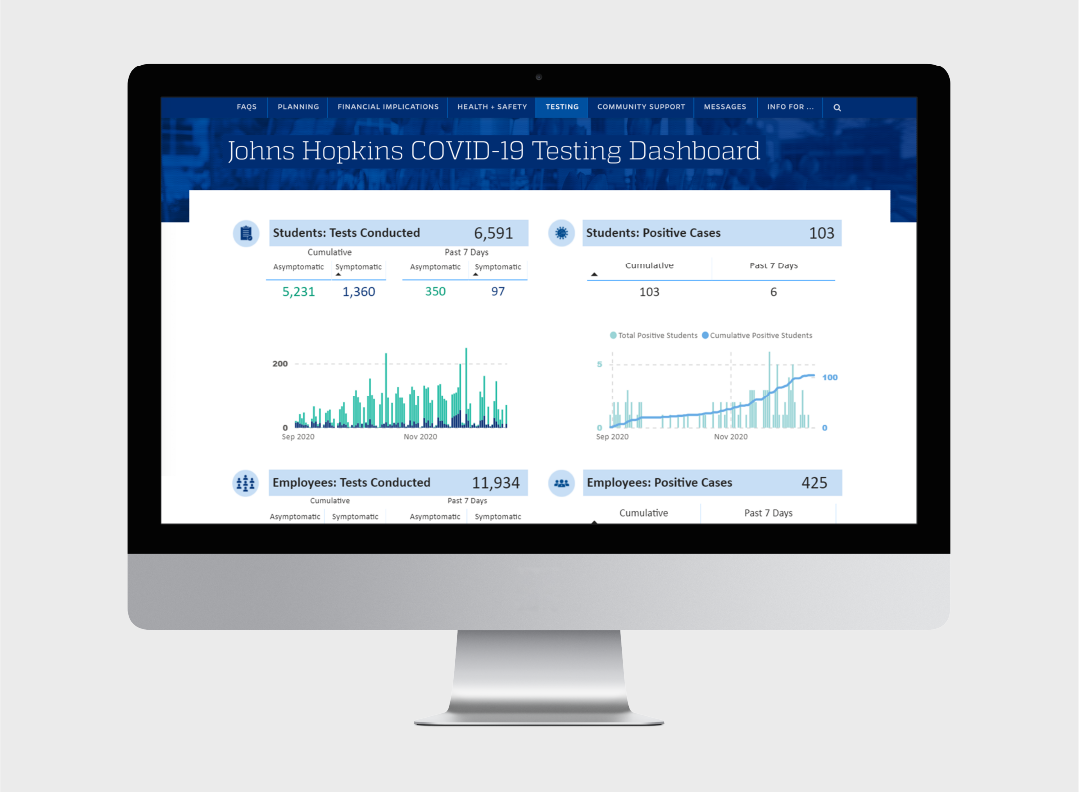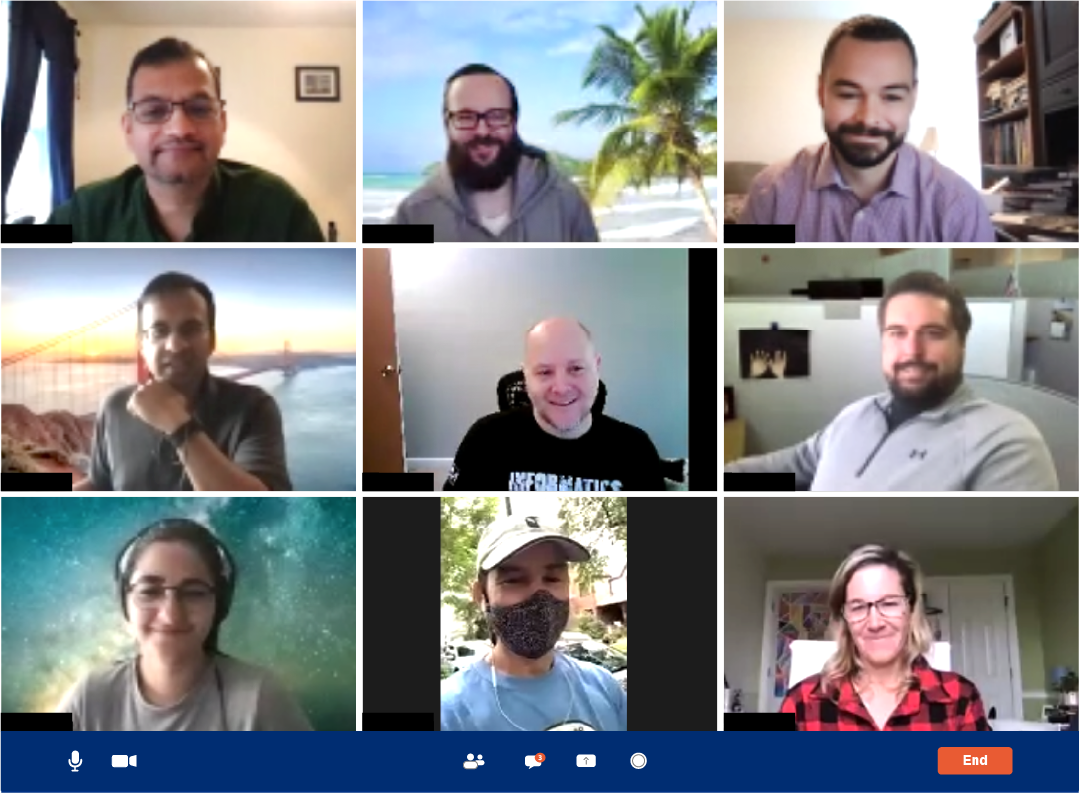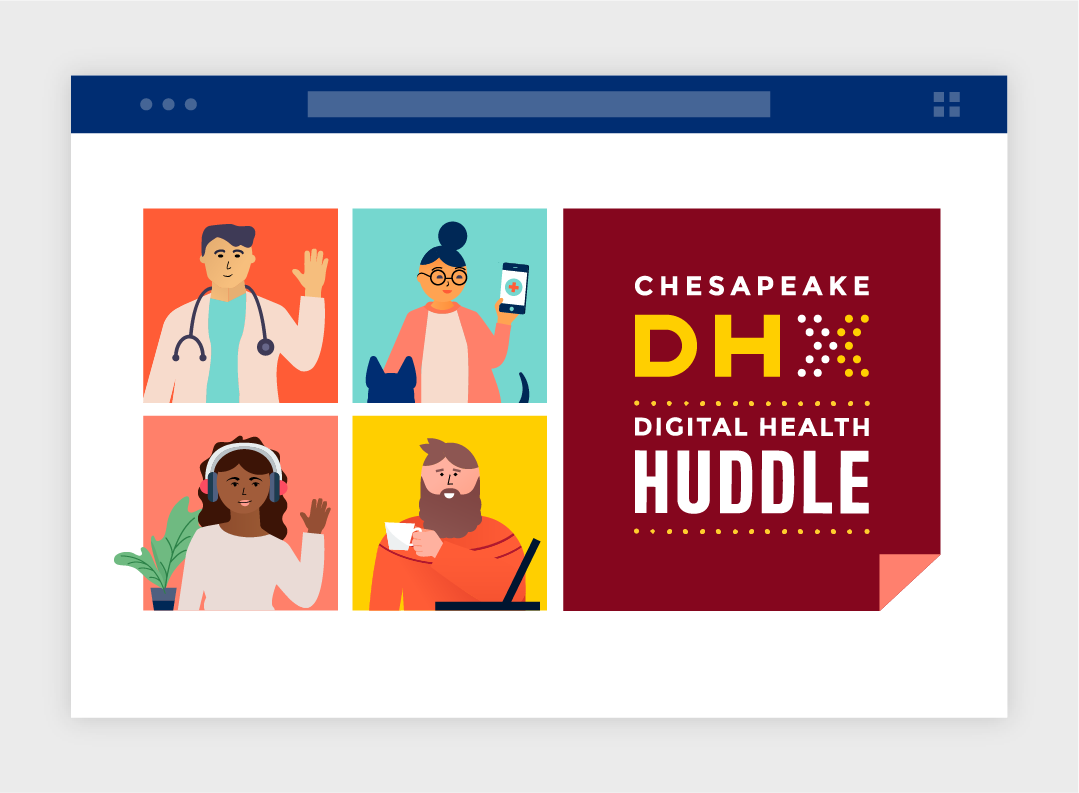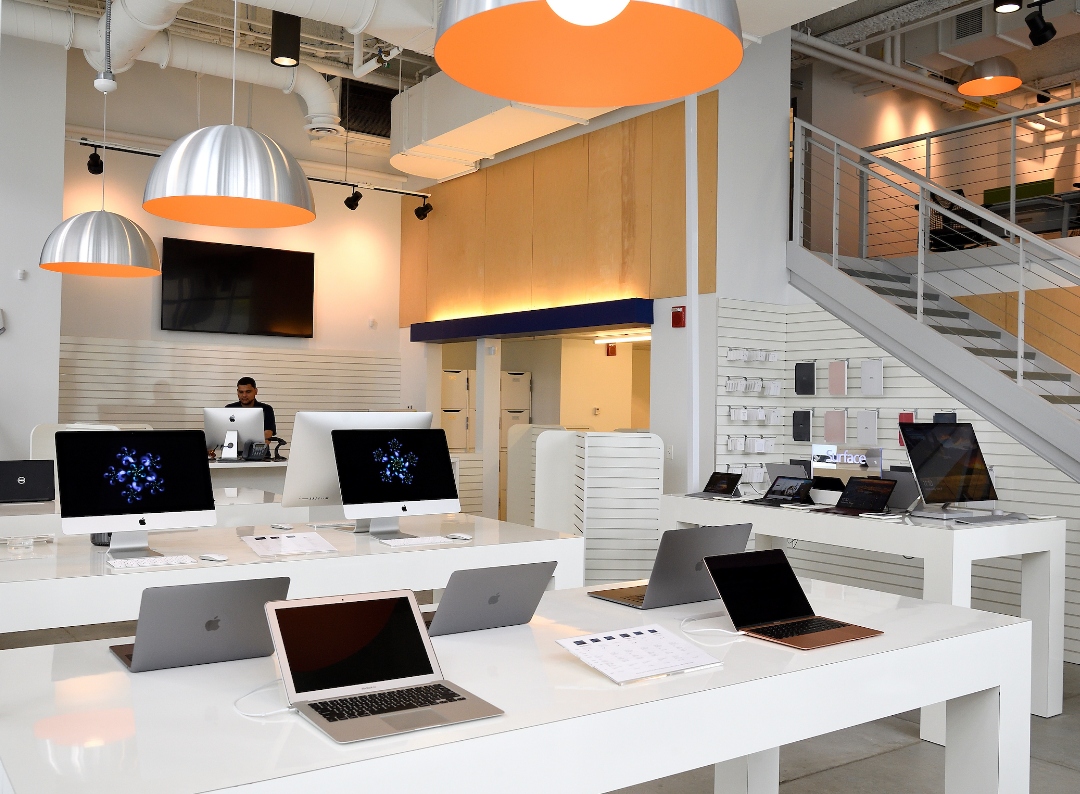Letter from Leadership
The Johns Hopkins Medicine Technology Innovation Center leads change in patient care by collaborating with internal and external partners. Our Annual Report highlights how we met the challenges that arose from the COVID-19 pandemic in 2020 in support of patients, students, faculty, and staff. But COVID-19 was not the only headline of 2020. We still carried out our leadership program for analysts, innovated in precision medicine and digital health, and ran another cohort of our medical software accelerator program.
Learn More
